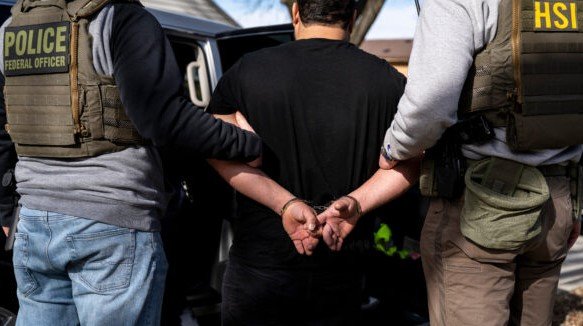In early September 2025, federal agents raided a major battery factory in Georgia, detaining hundreds of South Korean workers and triggering widespread anxiety. The operation at the Hyundai LG Energy plant near Savannah has led to project delays, forced vacations for some employees, and growing diplomatic tensions between the US and South Korea.
Details of the Immigration Raid
The raid happened on September 4, 2025, when Immigration and Customs Enforcement officers swept into the Hyundai LG Energy Solution plant in Ellabell, Georgia. They arrested 475 people, with most being South Korean nationals working on the site.
Officials said the workers violated visa rules by doing hands on tasks instead of just advising or training. Many held short term business visas or entered under a visa waiver program meant for brief visits.
This action marked the largest workplace immigration sweep under the current administration. It targeted a key electric vehicle battery project backed by billions in investments.
The plant aims to supply batteries for Hyundai electric cars. Construction started amid a push for more US manufacturing jobs.

Impact on South Korean Workers
Many detained workers faced harsh treatment during the raid. Reports describe agents using handcuffs and guns, leaving people in shock.
Over 300 South Koreans returned home by mid September after a week in custody. They arrived in Seoul to mixed reactions of support and protests.
- Some workers said they felt like criminals despite legal entry.
- Others reported being tied up and questioned for hours.
- A few mentioned losing personal items during the chaos.
Back in Georgia, remaining workers now avoid job sites. One company leader gave his team paid time off to recover from the stress.
Rumors of more checks at local stores keep people indoors. Engineers installing equipment at nearby plants, like the SK On facility in Cartersville, also stay away until rules clarify.
This fear disrupts daily life and work. Families worry about safety while projects stall.
Workers hunkered down in hotels, carrying passports everywhere. The ordeal tests their trust in US systems.
Business Fallout and Delays
The raid hits hard on the electric vehicle industry. Korean firms have poured over 350 billion dollars into US plants to meet growing demand.
Hyundai and its partners face setbacks in getting the Georgia site online. Delays could push back production timelines by weeks or months.
| Key Investments | Amount (Billions) | Location |
|---|---|---|
| Hyundai LG Battery Plant | 7.6 | Ellabell, Georgia |
| SK On Battery Facility | 5.0 | Cartersville, Georgia |
| Total Korean EV Investments in US | 350 | Various States |
Subcontractors like Woowon Technology report halted operations. Their engineers, on valid visas, now take forced breaks.
EV sales have slowed lately, adding pressure. Lost tax credits from policy changes make the market tougher.
Companies advise staff to skip US trips for now. This slows tech transfers needed for advanced battery making.
Local economies suffer too. The plants promised thousands of jobs in rural areas.
Diplomatic Tensions Rise
South Korea quickly voiced concerns over worker treatment. Officials probe for possible human rights abuses during the raid.
A top US diplomat expressed regret and suggested using the event to boost ties. Yet anger grows in Seoul.
Media there showed images of shackled workers, sparking public outrage. Protests greeted returnees at the airport.
The incident strains US South Korea relations amid trade deals. Both nations rely on strong alliances for tech and defense.
Three worker deaths at the Hyundai plant in recent years raise more safety questions. Investigations continue.
This raid highlights clashes between immigration enforcement and foreign investment needs.
Broader Context in US Immigration Policy
The Georgia action fits a pattern of stricter workplace checks under President Trump. It aims to protect American jobs but risks scaring off investors.
Similar raids happened in other sectors, like farming and tech. Yet this one stands out for targeting skilled engineers from an ally nation.
Experts say unclear visa rules confuse companies. Business visas limit work types, but projects often need hands on help.
Recent events include probes into other foreign worker programs. Debates rage over balancing security and economic growth.
Logical fixes could include clearer guidelines or new visa categories for tech setups.
As of September 18, 2025, no new raids are reported, but caution remains high.
Looking Ahead for Recovery
Stakeholders hope for quick resolutions to restart work. Companies push for better communication with immigration officials.
Workers need support to rebuild confidence. Training on visa rules could prevent future issues.
The event underscores the need for immigration reforms that support manufacturing booms.
Share your thoughts on this raid’s impact in the comments below. If it resonates, pass the article along to spark discussion.
